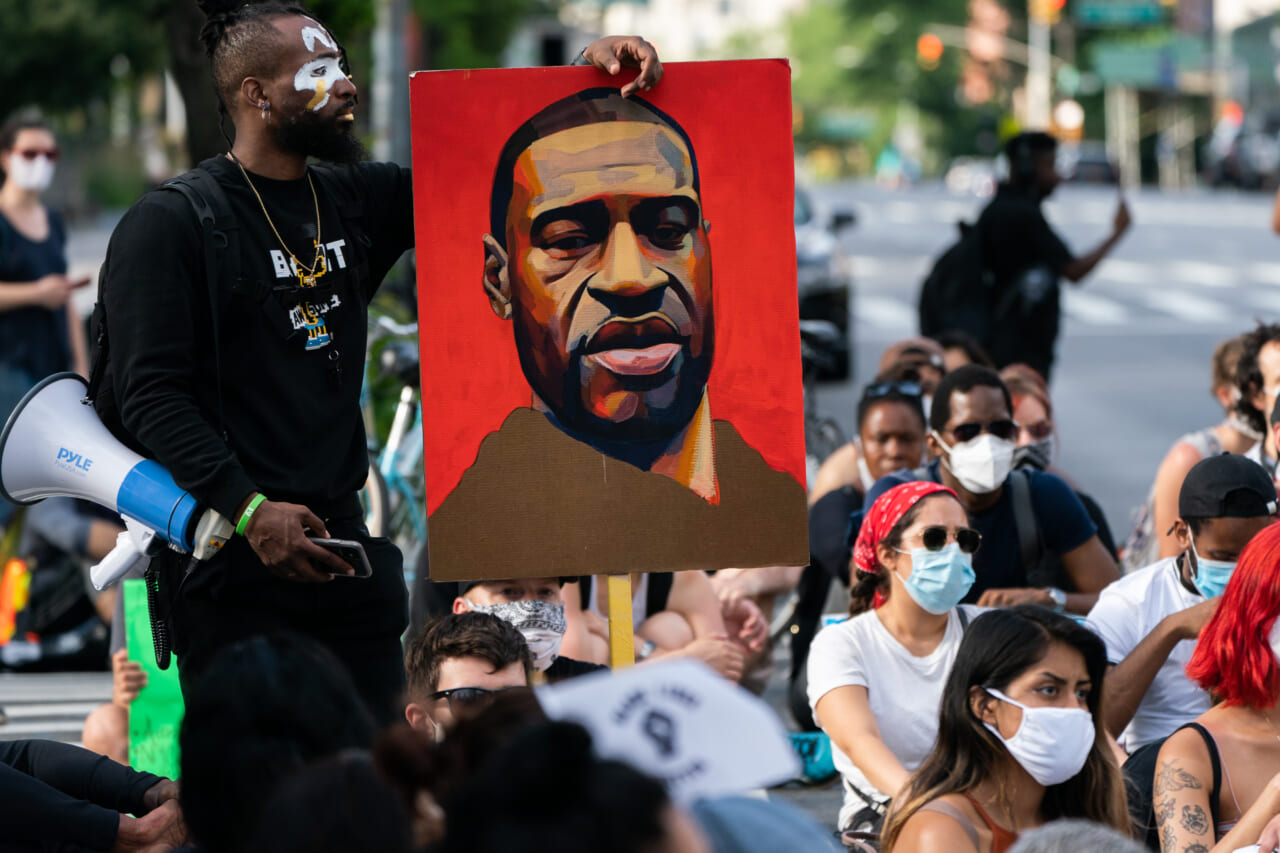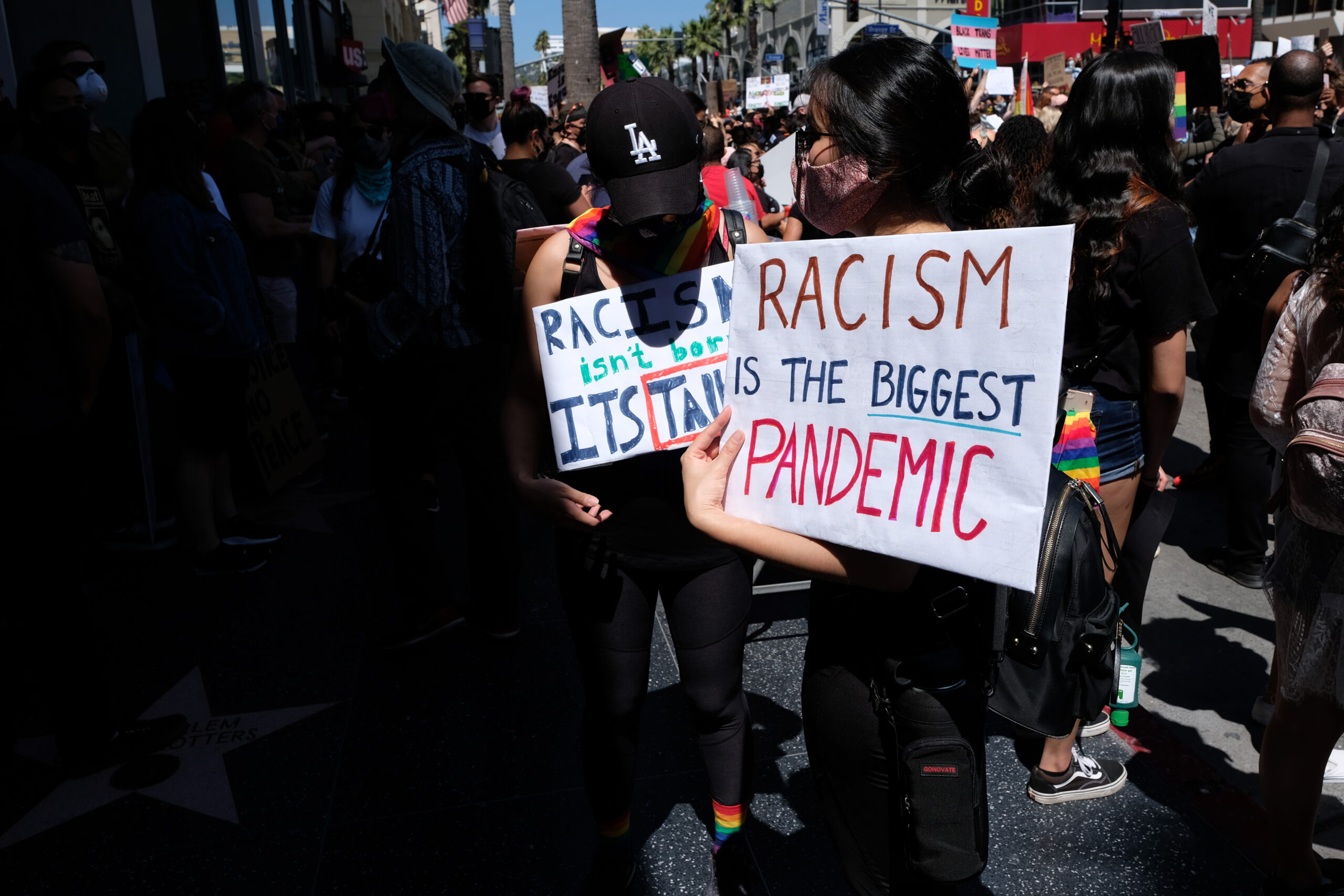What to read to know we’re not alone in 2020
Check out a dedicated list of books to dive into on the Black experience

The past two weeks have been filled with so many emotions. Often when I am feeling overwhelmed or looking for some clarity I turn to my books. Books are forever friends that help me contextualize the moment, gain a better understanding of myself and my community, and see new possibilities and futures.
As an academic, several friends and family inquired as to what I have read to help solidify my understanding of this moment, as well as what I am reading to get me through this moment. I figured I would ask some of my brilliant colleagues from various universities to help me answer these questions.
As my Purdue University colleague Nadia Brown pointed out, the journal Politics, Groups, and Identities has been at the forefront of publishing research on #BlackLivesMatter and the ensuing political responses. The journal released a micro-syllabus on Black Lives Matter last week and all of the essays are free until August 31, 2020.
The syllabus covers a broad range of topics using a variety of methods and epistemological approaches. The collection of readings on this syllabus could be used to create a course around Black Lives Matter and are important in educating the public on the movement.
I sent out the bat signal to my thoughtful and dedicated colleagues and here are their responses.
Daniel Q. Gillion, Julie Beren Platt and Marc E. Platt Presidential Distinguished Professor, University of Pennsylvania
What People Should Read to Understand:
If this were any other moment, I might’ve recommended someone else’s book. But in this particular moment, I got a throw my work out there, The Political Power of Protest (2013). This book shows how black protest positively impacts Congress, the president, and the Supreme Court with real change on racial issues.
RELATED: Juneteenth, Reconstruction, #BlackLivesMatter: more than an IG meme
The Loud Minority: why protests matter in American democracy (2020) demonstrates the influence black protests have on the electoral process, including mobilizing the vote, increasing campaign contributions, and influencing election outcomes.
Khalilah L. Brown-Dean, PhD, Associate Professor of Political Science, Quinnipiac University. Author of Identity Politics in the United States
What People Should Read to Understand:
When They Call You a Terrorist by Patrisse Cullors and Asha Bandele. The phrase “Black Lives Matter” has become ubiquitous. One can’t fully understand the magnitude of this current moment without addressing the origins and intentions of the movement directly from one of its founders.
Identity Politics in the United States by Khalilah L. Brown-Dean. Although the nouveau woke are suddenly speaking out against racialized violence, my book traces how battles over identity, citizenship, and belonging have shaped every aspect of American politics from battles over Confederate monuments, to voter suppression, to media coverage of the murder of Black trans women.

Know Your Price: Valuing Black Lives and Property in America’s Black Cities by Andre Perry. The confluence of COVID-19 disparities and the uprisings occurring in response to police violence lead many people to ask, “What do we need to do?” Perry’s book lays out in painstaking clarity the need to affirm Black lives by investing in Black lives. [I also recommend] The Wretched of the Earth by Frantz Fanon.
What I’m Reading for Solace:
Little Leaders: Bold Women in Black History, because we all need a reminder of the greatness from which we are descended. Parable of the Sower by Octavia Butler, because Butler tried to warn us years ago. The Fire Next Time by James Baldwin, who put it best, “I love America more than any other country in this world and, exactly for this reason, I insist on the right to criticize her perpetually.” And lastly, The Bible because Lord knows I need the encouragement.
Marcus Board, PhD, Assistant Professor, College – Department of African American Studies, Georgetown University
What People Should Read to Understand:
For the moment, folks should look at Boundaries of Blackness by Cathy Cohen. It teaches us that movement is happening all around us; that we are responsible for supporting all oppressed people; and that someone will experience grave consequences whenever we fail to build equitable communities.
What I’m Reading for Solace:
In moments like this I turn to the Angela Davis autobiography. Released shortly after she exonerated from California’s death row, this book is important for me because it teaches the complications of oppression. Davis is as much a product of Birmingham, Alabama as my college president Freeman Hrabowski – producing Black MDs, PhDs, and MD/PhDs at extremely high rates – and former Secretary of State Condoleezza Rice. Oppression can send Black people in complicated directions. This book gives me more grace for our less than revolutionary family.
Nadia E. Brown, PhD, Associate Professor and University Faculty Scholar of Political Science and African American Studies at Purdue University. Author of Sisters in the Statehouse: Black Women and Legislative Decision Making
What People Should Read to Understand:
Keisha Lindsay‘s In a Classroom of their Own: The intersection of race and feminist politics in all-black male schools. This is a brilliant book that looks at the constructions and social performances of intersectional identities at the nexus of privilege, oppression, marginalization, education and policy. She examines how the creation of all-Black boys schools – often taught and staffed by white women – can take well intentioned social justice advances into a completely different direction. While all-Black boys schools were the brain child of progressives, the powerful relationships of race, gender, and justice highlights divisions in political agendas. This book has been helpful in making sense of the dual narrative of Black boy “in crisis” or “endangered” as one side of the coin the perpetuates anti-feminism and white women’s complicit narratives in gender-race based oppression. This does not leave out Black girls’ own oppression, but rather theorizes what na anti-racist and feminist coalition might look like for both progressive and productive policy solutions.

What I’m Reading for Solace:
Unfortunately, I haven’t read adult books for pleasure in a while. But, I’m enjoying reading empowering books with my girls. We have wonderful conversations about justice, equality, marginalization, and political responses with Black people – often women and girls as the lead figures/characters. I want to show them the resilience that is encoded in their DNA as Black girls. Last night, we read Before She was Harriett. We often read “chapters” in Little Leaders: Bold Women in Black History. We also read Two Friends: Susan B. Anthony and Frederick Douglass, My Painted House, My Friendly Chicken, and Me by Maya Angelou, and John Henry: An American Legend. My soon-to-be reader loves Misty Copeland: Ballet Star because it contains many of her sight words, so she “reads” it to us. Other favorites are Ada Twist, Scientist and I Like Myself. Our goal is to expose the girls to the beauty of Blackness, the struggle, pain and magic of it all.
Niambi Carter, PhD, Associate Professor of Political Science, Howard University. Author of American While Black: Race, Immigration and the Limits of Citizenship
What People Should Read to Understand:
Robin DiAngelo‘s White Fragility; Carol Anderson‘s White Rage; Ibram X. Kendi‘s Stamped from the Beginning
To stay sane, I’m reading:
Michael Arcenaux‘s I Don’t Want to Die Broke and Samantha Irby‘s Wow, No Thank You.
Sekou Franklin, Ph.D., Associate Professor, Department of Political Science, Middle Tennessee State University. Author of After the Rebellion: Black Youth, Social Movement Activism, and the Post-Civil Rights Generation
What People Should Read to Understand:
Sekou Franklin‘s After the Rebellion: Black Youth, Social Movement Activism, and the Post-Civil Rights Generation. The book documents the different modes of youth-based/student activism after the 1960s and the pitfalls that await intergenerational and youth-led popular mobilization campaigns.
Megan Ming Francis‘ Civil Rights and the Making of the Modern American State. This book that assesses the NAACP’s anti-lynching campaign in the early 20th century. It counters traditional interpretations of NAACP activism. It demonstrates how activists can effectively balance grassroots activism, lobbying, and movement building.
RELATED: #SelfCareSunday: Why giving yourself space is so important after a friendship ends
Mark Engler and Paul Engler‘s This Is an Uprising: How Nonviolent Revolt Is Shaping the Twenty-First Century. This is one of the best books in recent years that documents rebellions in the United States and abroad. It offers a roadmap for insurgent campaigns on how to build movement infrastructures, different strategies and tactics, and identifies lesser known, though important, movement activists in recent decades.
Charles Payne‘s I’ve Got the Light of Freedom: The Organizing Tradition and the Mississippi Freedom Struggle. This is a must read for activists seeking to make a difference beyond the surge or wave of protests. Payne documents the work of the Student Nonviolent Coordinating Committee (SNCC) and indigenous activists in Mississippi. The book documents the behind-the-scenes or blue-collar work of local people in the 1960s’ Mississippi Freedom Movement.
Dorothy Cotton‘s If Your Back’s Not Bent: The Role of the Citizenship Education Program in the Civil Rights Movement. This is an easy, but great read of the citizenship schools that operated in the late 1950s and 1960s. Initially started by Septima Clark and Esau Jenkins at the Highlander Folk School, it was taken over by Martin Luther King, Jr.’s Southern Christian Leadership Conference (SCLC). It expanded under the SCLC’s stewardship, training thousands of Black southerners, many of whom were from cash-strapped, rural communities that had thriving movement campaigns.
https://open.spotify.com/episode/0RCfxfB5wJmOf0n18l2pEk






